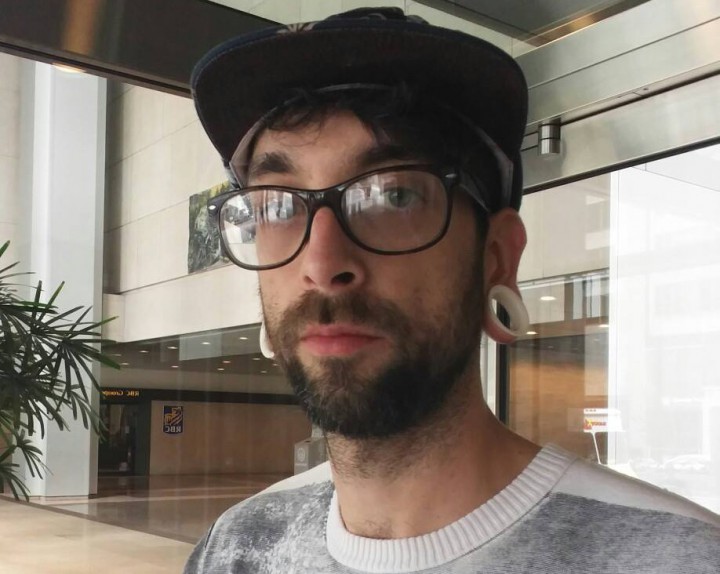MONTREAL – Loïc-Hélène Gros-Désormeaux received the phone call no mother wants to hear.

Her son, Carl Shunamon, 34, had crashed into a barrier in the Ville-Marie tunnel on Aug. 30.
Shunamon was working as a caterer on a television production set at the time of the accident.
A nurse who was driving in the car behind him pulled him out just as the car caught fire.
He was rushed to the hospital, but suffered serious brain trauma, a broken neck and was placed in an artificial coma.
“We talked to him and we said ‘if you have to go, just go,'” she said.
Doctors told Gros-Désormeaux there was a slim chance he would survive – and if he did, he would be a vegetable.
So, she had a decision to make.
“If somebody could have helped Carl, I would have appreciated it,” she said.
She agreed to donate his organs, simply because it seemed like the right thing to do.
It was in his nature to help people.
“He was very sweet with people,” she said.
“His friends always tell me stories about how he helped them.”
Gros-Désormeaux called Global News to confirm her son had been taken off life support.
He died at 9 p.m. Wednesday.
“Every time he saw somebody on the street, he was giving food to the homeless (he was a chef). So, I’m sure if he had the choice that he knew he could help somebody he would do it,” said Gros-Désormeaux.
Shunamon joins a very short list of Quebecers who have donated organs – only 154 people in 2014 – a big difference compared to the 1,073 patients waiting for transplants.
According to Transplant Québec, one donor can save up to eight lives.
“We can do better in Quebec, but it’s important to know that it’s only one per cent of people that can be an organ donor,” said Louis Beaulieu, Director of Transplant Québec, adding that only about 340 people admitted to hospital each year can be considered donors.
All the same, it was a difficult decision for Gros-Désormeaux to make.
Shumanon’s son, Holden – who turned two just three days after his father’s accident – visited the hospital to say good-bye.
“He was looking at him sleeping, so he went to see him and caress his tattoos – he recognized his Dad,” she said.
“We don’t know if he’s going to have a memory, but at least he can say good-bye.”
Shunamon’s family was by his side until the end.
Gros-Désormeaux, her daughter – Shumanon’s sister – and his girlfriend have now both signed up to be organ donors.
A private funeral for family and friends was held on Friday to celebrate his life.
The CSST is investigating the events leading up to Shunamon’s accident.
Last Friday, workers with the The Quebec Alliance for Sound and Image Technicians (AQTIS) walked off the production set to protest what they said was a frenetic work schedule.
“First the accident, then a member collapsed on set because of the extreme heat and other incidents happened,” said Jean-Claude Rocheleau, AQTIS’ General Manager.
“The members decided to walk out because they said ‘before something else happens to us, we prefer to stop there.'”
They returned to work after weekend meetings with production company Aetios, who is currently shooting two television productions in Montreal, Ruptures and Blue Moon.
But Gros-Désormeaux believes her son’s accident is being unfairly characterized in the dispute.
She’s a long time family friend and told me she had been bombarded by calls from journalists.
She reached out to Global News because she wanted to speak to someone she trusted.
“They’re trying to use Carl for their dispute,” she told Global News.
AQTIS represents about 4,200 freelance workers in various areas of the film industry.
“Carl never complained about his work and they’re trying to put him in the middle,” said Gros-Désormeaux, adding that he worked three days a week on the set – not enough for it to be considered ‘overworking’.
“Don’t use Carl as an excuse that he died because of that.”
The CSST’s full report on whether the accident was work-related is expected to be completed by next week.
rachel.lau@globalnews.ca
Follow @rachel_lau






Comments